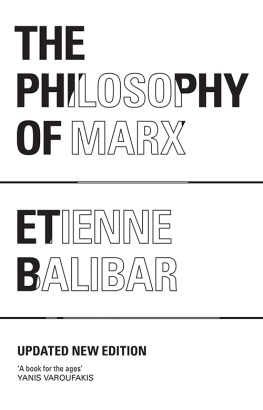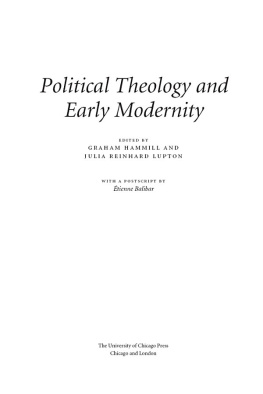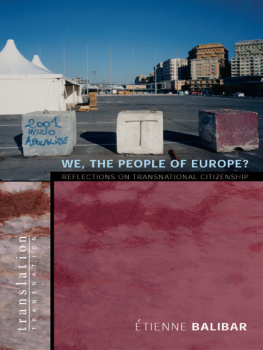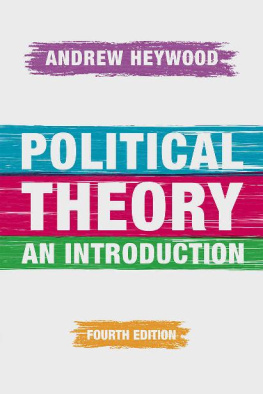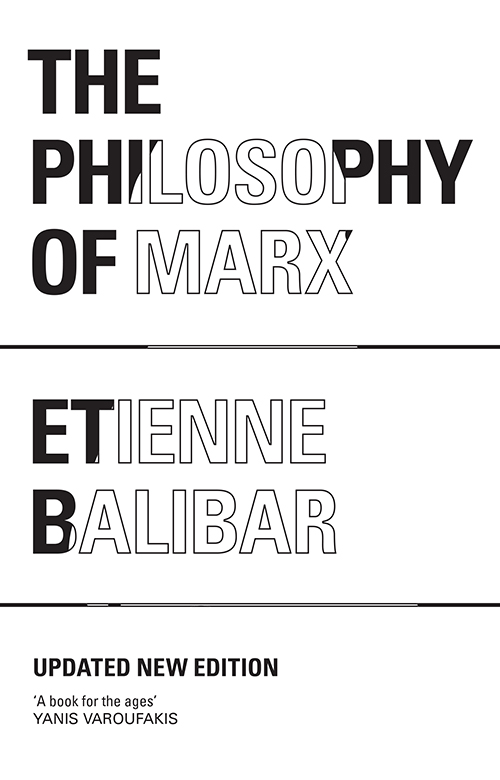When Hugues Jallon, Franois Gezes successor as managing director of ditions La Dcouverte, suggested reissuing my 1993 opuscule, The Philosophy of Marx, in a different format, I wondered whether this might be an appropriate occasion to revise or alter the original text. For the reasons indicated below, this did not seem to me to be either possible or, in truth, desirable. On the other hand, I did think that in current circumstances the book might benefit from two additions, which in their own way serve to bring it up to date.
The first is the Introduction: From Althusserian Marxism to the Philosophies of Marx? Twenty Years After. This is a version of the text I had just written as an afterword to the German translation of La Philosophie de Marx by my friend Frieder Otto Wolf, himself a Marxist activist and philosopher, who had asked me to situate the 1993 text in relation to my present views for German readers. It seemed to me that my response might equally be addressed to French or English readers. I am all the more grateful to him for his prompting, in that we thereby found ourselves after a fashion reconstructing the trans-linguistic and cross-border space in which Marxs oeuvre was elaborated.
Given this, readers will readily understand why I wished to supplement this reprint with an essay on Philosophical Anthropology or Ontology of Relations? Exploring the Sixth Thesis on Feuerbach, derived from a study day at Albany University in 2011. As will be apparent, the style is that not of an introduction, but of a semi-philological, semi-philosophical discussion focused on a specific point of interpretation of the Marxian corpus (connected with the humanist controversy and new debates on social ontology). I hope that, in the light of the exposition furnished in the body of the book, it will prove accessible to all my readers or most of them. But (in addition to the celebrity of the text under discussion) I have another reason for wishing to provide this supplement. The passages in The Philosophy of Marx where I refer to the presence in Marx specifically the Sixth Thesis of a philosophy of trans-individuality (in some respects comparable to those of Spinoza and Freud) and an ontology of relations which (logically and politically) inverts the primacy of individuals over their relations, have elicited interest and prompted questions. What better opportunity than this new edition to attempt an answer or, at least, clarify the meaning of the hypothesis?
Finally, I should signal that, by agreement with the publisher, the present edition reproduces the Bibliographical Guide from the 2001 reprint, which was a revised and expanded version of the 1993 version. For strictly pedagogical purposes, a complete overhaul (and expansion) would be required today, for which I lack the competence. There are many excellent introductions to Marx and sites devoted to the study of his work and Marxism which will, I hope, compensate for this absence. Accordingly, the Guide simply provides full details of the texts to which I have referred. I have also retained the system of insets characteristic of the Repres collection, which offers historical and biographical summaries or textual extracts that are useful for understanding the main argument.
Introduction to the New Edition:
From Althusserian Marxism to
the Philosophies of Marx?
Twenty Years After
I wrote this little book on Marxs philosophy in 1993, at the request of two friends: Franois Gze, managing director of ditions La Dcouverte, and my colleague at the University of Paris I, Jean-Paul Piriou, an economist and trade unionist no longer with us, who founded the Repres collection to help educate students in the social and human sciences in a spirit critical of reigning orthodoxies and uninhibited by disciplinary boundaries. Obviously, the publishers idea was that these titles, written so far as possible in an accessible style, without jargon but also without over-simplification, might prove of interest to a wider readership. Twenty years later, I think it can be said that those objectives have pretty much been achieved, both in the Francophone world (where the book has been reprinted several times) and abroad (where several translations are still in print). So I do not regret the effort I devoted in a few weeks of intensive work to assembling and summarizing, in a strictly limited space, what I believed I had learned over thirty years about the objects of Marxs philosophical thinking and its modalities and problems. The endeavour seems to have enabled various groups of readers, whether beginners or not, to enter Marxs intellectual universe from a particular angle, supplying them with the wherewithal to discuss his relevance. It also allowed me to formulate some interpretative keys which I had been researching for a long time, comparing them with those of other readers who were my contemporaries.
But twenty years is a long time. The world has changed the social world which Marxs famous Eleventh Thesis on Feuerbach demanded should be changed, not merely interpreted. I myself (to say nothing of other philosophers of my generation) have changed. Would I write this little book in the same way today? Such, in sum, is the question posed to me by Frieder Otto Wolf in the name of future readers of this book in the German-speaking world, and which might just as readily (or so I believe) be put by French or English readers.
The answer, obviously, is no: I would not write it in the same way. But the answer is also that I am not convinced I would be able to produce such a synthesis today, although I have not stopped going back to Marxs texts since the 1990s: to test their efficacy in dealing with various current philosophical and political issues (in no particular order we might cite the economy of violence and the ambivalence of its effects, the changes in subjectivity and the capacity for action induced by capitalist globalization, the internal conflicts of universalism, the administrative and ideological function of borders, the prospects for trans-national citizenship, the crisis of European secularism and its French variant,

